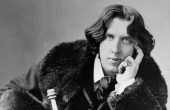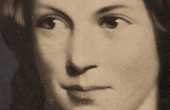Rachel Watson
English graduate student from Virginia, writing about Victorian literature, current film and TV, aesthetics, and gender and sexuality. Stays curious.
Junior Contributor III
- Lurker
- Pssst
- ?
- Articles
2 - Featured
1 - Comments
23
- Ext. Comments
16 - Processed
0 - Revisions
0
- Topics
4 - Topics Taken
2 - Notes
13
- Topics Proc.
2 - Topics Rev.
0
- Points
338 - Rank
X - Score
186
Latest Articles
Latest Topics
The Women of Breaking BadDespite the popularity and artistic greatness of "Breaking Bad," the one critique I continue to apply to one of my favorite series is the relative weakness and low amount of characterization of its female characters in relation to the multi-faceted, finely constructed male characters. This article could take the form of diving more deeply into each woman's psychology (to prove me wrong, perhaps) or (if you agree with me) supporting the lack of balance between the men and women of the series in terms of characterization. The primary women under question could include Skyler White, Marie Schrader, Lydia Rodarte-Quayle, Jane Margolis, Andrea Cantillo, and even Saul's secretary Francesca and the school principal Carmen Molina. Maybe even Gretchen Schwartz? Let me know what you think!
|
film Write this topicThe decline in experimental/creative period films, and whyIt seems that period films in the twenty-first century have never been more popular. However, after watching the trailers for the newly released "Far From the Madding Crowd" and the upcoming release of "Madame Bovary," it seems like all of the period films are being produced, made, and designed in exactly the same way–with all of the attention on costume, make-up, setting, and cinematography. These filmmakers do not seem to want to make a period film that is experimental, or that interprets the source material in a new or refreshing way. Of course, this is usually for financial reasons. But are there any other reasons? Should the beautifully-shot, beautifully-costumed, but traditionally scripted, edited, and directed period film continue to be made? Or are there ways to go in new directions with this film genre?
|
arts Write this topicSmashing Broadway Musicals vs. Small Experimental Plays: The Future of American Theatre OnstageA potential analysis of why theatre in America, especially academic theatre, has committed itself to musical theatre and regurgitating Shakespeare rather than experimenting with new, unusual, or under-performed works. Why has financial gain outweighed aesthetic discovery in theatre? Does this have anything to do with the role theatre plays and/or will play in a world that has become more and more dominated by movies and television?
|
Latest Comments
| "Cultural Labour": The Fabricated Fantasy of NYC Fashion Culture | |
Wow! I’m always pleasantly surprised by that fact that, even having read and seen Hamlet more times than I care to mention, I can still stumble upon new perspectives on the play. I’ve often thought about the discrepancy between who can see the ghost and who cannot in terms of awareness with the spiritual world and with their own (im)morality, but I’ve never considered the influence of memory. As you say, “Those that can see remember, those that cannot have forgotten.” Thank you for this article! | The Ghost of Shakespeare's Hamlet: "Purpose is but the Slave to Memory." |
“All I Ever Wanted” also makes me think of the absolutely breathtaking animation during that scene, when Moses is running through the streets at night when that song first begins. The background animation, specifically in terms of perspective, is just to die for. | Five Animated Musicals That Are Not Disney |
Thank you truly for this article! It was definitely a trip down memory-lane. I agree with your tastes in “The Prince of Egypt” and “Anastasia.” It’s so interesting that some of the best non-Disney musicals I watched as a child were also learning tools. I learned so much about the story of Exodus, Egyptian culture (like the Egyptian pantheon when the two high priests have their musical number), and Russian culture from these two movies that I still remember today. I second the recommendation to add “Quest for Camelot” to this list! | Five Animated Musicals That Are Not Disney |
This is a very wonderful and relevant article! I love that you included a section about the benefits of dramatic performance for the performers, especially in the context of adolescents. A group of high school students creating a film–even one that involves the same level of acting talent–simply does not foster the same emotional investment. In film there can always be multiple takes of the same scene, and then the best one can be selected; in theatre, we can let our guards down and respect one another for the mistakes we make, but also for the triumphs we have. The idea of success is different when we know there cannot be “redo” like there can be while filming a movie. While watching TV or film, there seems to be a constant self-awareness on the viewer’s part that they are only watching a screen. Theatre allows for the opportunity to blur fantasy and reality, even to extremes. One such theatre practitioner whose contributions show that the experience of film can never come close to that of theatre is Antonin Artaud. He devoted his life’s work to configuring theatrical spectacles that would totally immerse and integrate the audience. The goal was that the audience would leave the spectacle and be truly changed. That is the only problem with the traditional “fourth wall” theatre in which the actors and the audience occupy separate spaces. Somehow this form of theatre can still take on the feeling of watching a film, since the performers pretend like they are not being watched and subsequently have no connection to the audience, just like actors on a screen. In both secondary and higher education, students need to be encouraged by educators to experiment with different performance spaces. | Film vs. Theatre: Engaging Young People in Off-Screen Drama |
What a fascinating article! I knew so little about Warhol before reading this, and now I feel like I have a new appreciation. I’m especially intrigued by Warhol as a filmmaker. Both clips, but especially the one from “Lonesome Cowboys,” has really piqued my interest to learn more about how Warhol blended his sexual identity with his artistic endeavors in its many forms. | Andy Warhol: Innovator of the Selfie, YouTube, Reality TV and Gay Cowboys |
Thank you for your comment, Venus Echos! I certainly appreciate your perspective on “isms.” While they aim to simplify the conversations about such nuanced ideologies as “sexism” and “feminism,” they can also be debilitating. They also tend to encourage contrast and conflict rather than striving for a sense of cooperation. I would enjoy the time when these can be eliminated but I feel that, for now, they will continue to be used. I can only hope that when I use such terms, I do so to the best of my ability. | Analyzing Jane Eyre as a Contemporary "Bad Feminist" |
Thank you for your comment, chance! Taking a look at the intersection between class and gender in a Victorian novel like “Jane Eyre” would make a wonderful post in the Literature category. There is always more that can be said about any given topic, especially with such a nuanced topic such as the definition of “feminism.” Can such an ideology really ever be fully defined? | Analyzing Jane Eyre as a Contemporary "Bad Feminist" |


This is a very pertinent and relevant article, and it certainly reminds one of the entire premise of “The Devil’s Wear Prada.” As a general life lesson, sometimes it’s hard to forget that the individuals who receive the glory perhaps do the least amount of actual work. With this being said, I would be interested in learning more about how Wintour became who she is today. Was she privileged? Or did she earn her spot? Or a little bit of both? There’s always more than one side to the story, and so perhaps the documentary missed the other side.